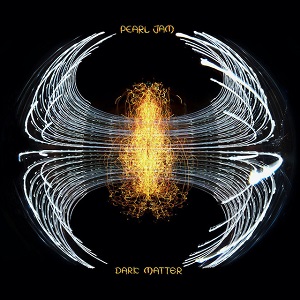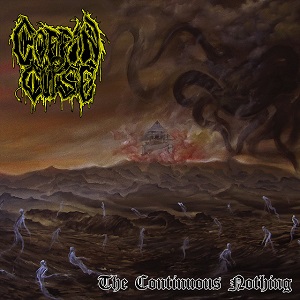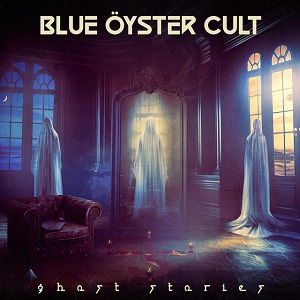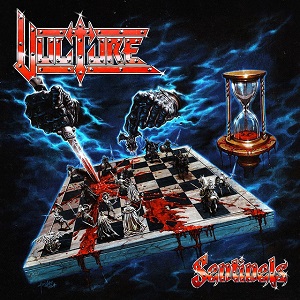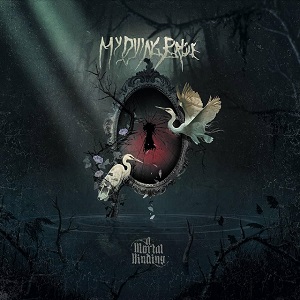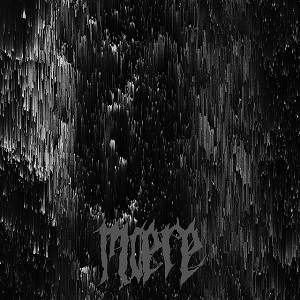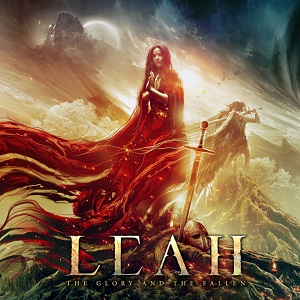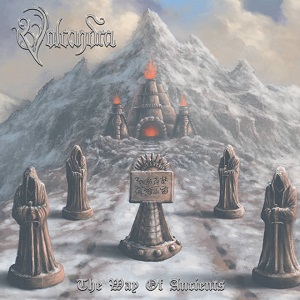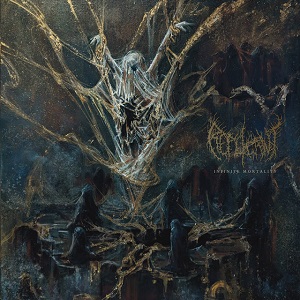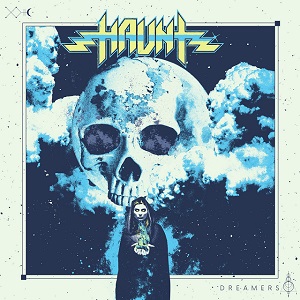MICHAEL SCHENKER’S TEMPLE OF ROCK - “‘Herman, I’ve Seen A Guy That Looks Just Like Michael!”
April 29, 2015, 8 years ago
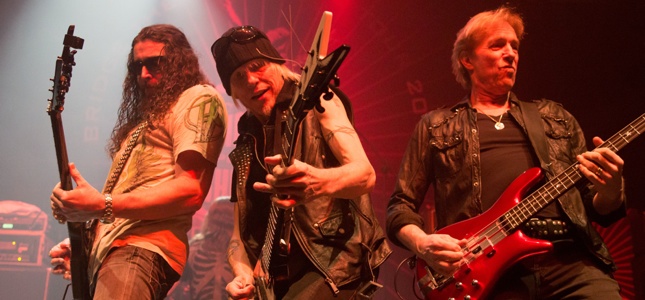
For a top-tier classic metal fix, look no further than Michael Schenker’s Temple of Rock, who is currently blasting across America in support of their richly Euro-metalized new album, Spirit On A Mission.
Fancy your Scorpions’ Lovedrive? Well, three of six of the folks on that landmark album are right here, namely Michael, Francis Buchholz and Herman Rarebell, who are joined in the Temple by consummate and longtime Schenker collaborator Wayne Findlay and England’s finest vintage metal singer Doogie White.
“It is a challenge, of course,” laughs Francis, who finds himself playing a form of detailed and regal metal with Michael far above the demands of his days in the golden era Scorpions lineup. “But it’s always a challenge to record an album, because you want to find a compromise between what you want to play and what fits with the songs. And Michael wanted everything to be quite fast on this album. He wanted eighth notes on this album, so that’s what I did.”Besides Michael being, quite plainly, on a creative tear, there are appointments to Spirit On A Mission that cannot be denied, from Doogie’s lush vocal melodies, through to the innovatively “soft” and powerfully organic production values.
“The production is done by Michael, and by Michael Voss, the other German guitar player who has a studio,” explains Buchholz. “And they work together very well. They have a good relationship musically. So Michael Voss is recording Michael’s solo, leads and all that, and because they have a good relationship musically, Michael Schenker feels very comfortable there. Production-wise, I could think of more modern production, but this is what Michael wants. But you have five people, everybody has a different angle of how they want it, how I would want it. I would probably want it more, quote unquote modern-sounding. But Michael wants it this way. So he got what he wanted and I’m happy with it. Directly after the mixing, I’m always unhappy. But that’s always been the case. Even with the Scorpions albums. I was in the studio and I was happy with the mixes, and then went home, one week, I put up the album again and I’d say, is it great or is it not so great? Possibly you’re too close to the picture. When you are so close to the picture, you don’t know, is it good or is it average? So production-wise, it’s a question of taste.”
And why do this? Herman wrote the lyrics to a pile of Scorpions hits so he’s set for life. And in Buchholz’s case, certainly Francis doesn’t need to either, financially speaking, having just won his epic 20-year battle for his Scorpions royalties.
“It is, for me, my life,” says the youthful Buchholz. “I started music, not because I would make much money. Then I planned to continue on what I was doing before. For me, music was only fun. Originally, it was having fun for one year with music and then going back to what I was initially going to become: an engineer. But I’m still here. I took a long break after the Scorpions. I had my family; I had three children to raise. So I went away from playing live and from recording all the time. So I did some recordings in Germany, until I did a tour with Uli Jon Roth, and now I’m in this situation again and I really like it. It’s fun to be on stage and to play with people. We have a great band. I think this band sounds very good on stage. When we play, I feel very comfortable. It’s demanding, so I’m smiling.”It’s quite astonishing the transformation Michael’s made in recent years, Schenker crafting solid, heavy records skilfully and quickly...
“Yes, well, first of all, I don’t know the Michael after he left the Scorpions in 1979,” notes Francis. “We did one record together, Lovedrive, and he recorded some of the guitars on it. But the new Michael plays like the old Michael. He plays wonderful. He’s just great on his guitar. He’s rhythmically clear. He has wonderful melodies. He has great ideas. He’s an inspirational musician. What I didn’t like about the old Michael was all the drinking. Now he’s the new Michael, without any alcohol, without anything. And he’s such a great guy to be with. When I heard that he left all the old problems behind, I said, okay, let’s do it. Nothing is worse than when you have to stop a tour because somebody cannot work. But now there’s big excitement when we play. There’s a chemistry, especially between Michael and Herman and myself, which is from the old days, and Doogie is great and Wayne is a wonderful guitar player and second voices and keyboards—it’s a great combination.”“I feel very lucky that I’m still able to play at 65,” adds Herman, who, like Francis, looks a good 15 years younger than that. “Most of my friends are dead now. This is true. Cancer or through alcohol and drugs. So when you look around, other people like Jon Lord and Ronnie James Dio, who were regulars all those years, now they’re gone. That just shows you that life is too short to waste it. And also it shows you that you take nothing with you. You come naked, you go naked. This is the only fair thing in life. So I embrace the challenge to play with Michael.”
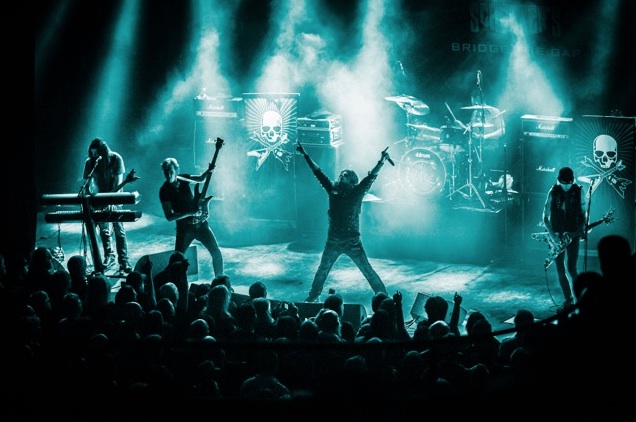
And not to get morbid, but Michael is making some pretty heavy and proggy metal here. When Herman and Francis are long gone, it’s very likely that their work with Michael is going to represent their greatest contributions to rock as players.
“Yes,” agrees Herman, “when you’re talking about drumming and art, how I can play now, you’re absolutely right. This puts me from here to here (raises hand). Because all the drummers now write to me, ‘I never knew you could play that good. This is amazing. Why didn’t you play like this in the Scorpions?’ Very simple—the songs were much more simple and more commercial, obviously. Michael’s strength—and I think this is interesting—is to satisfy all the guitar players worldwide. And as you know, the last two or three times, he was voted in London as being the best guitarist in England—as a German. And believe me, they were all there from Jimmy Page to Tony Iommi to Ronnie Wood. I think it’s a great honour for him—the great guitar players all admire him. And I feel honoured that I am his drummer. And he loves my playing—even better! (laughs).
Photo credits: Slider by Adam Kennedy; live shot by John Bull)


